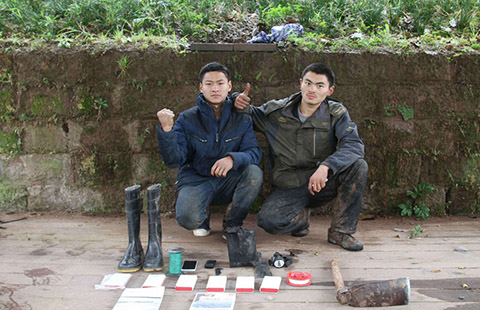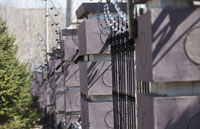Domestic tech to form core of subway expansion plans
By Hu Yongqi (China Daily) Updated: 2016-02-26 08:06
Chinese-made hardware and software will be at the heart of Beijing's subway system as it looks to expand in the coming years.
The transport network is expected to almost double in length between now and 2020, from the 554 km of track it had at the end of last year to 999 km four years from now.
Currently, it carries 10 million passengers every day, accounting for about 48 percent of the capital's public transport users and making it the busiest subway system in the world.
With the new expansion will come a renewed focus on safety and efficiency - as well as an emphasis on using domestically developed technology wherever possible.
Zhan Minghui, director of Beijing Rail Traffic Control Center, said this was in line with President Xi Jinping's directives, which he made following an inspection of the subway two years ago.
The president said the subway must be secure, convenient, efficient and economical, with standardized operation procedures and a greater utilization of domestic software, Zhan said.
"We have been promoting domestic products just as President Xi said, and by 2017, all subway lines will adopt domestically made software and hardware," said Zhan, who was one of the officials to accompany the president during his visit. "President Xi smiled when he heard about our world-leading technologies. I think that was the most impressive moment."
Rong Jun, spokesman for the Beijing Municipal Commission of Transport, said an optimized signal system had increased efficiency on the subway by reducing the times between trains.
During rush hour, this interval is down to just 1 minute and 43 seconds on Subway Line 4, which cuts through the city north to the south. About 99.9 percent of trains arrive punctually, making the subway the quickest means of travel in the overcrowded capital, according to Rong. "All these improvements have been achieved on the condition that the trains must be safe for passengers," he said.
huyongqi@chinadaily.com.cn
(China Daily 02/26/2016 page7)
- Projects opening to overseas researchers
- Streamlined processes to aid top talent
- Two smog hot spots identified in Beijing by think tank
- China-led gravitational wave venture seeks global talent
- Gated communities will open 'gradually', says ministry
- Watchdog pledges to intensify scrutiny
- Court says community road rule needs legislative support
- Improved child care leave for both parents introduced in Shanghai
- Beijing set to double air monitoring stations
- Train ticket glitch results in a lawsuit







